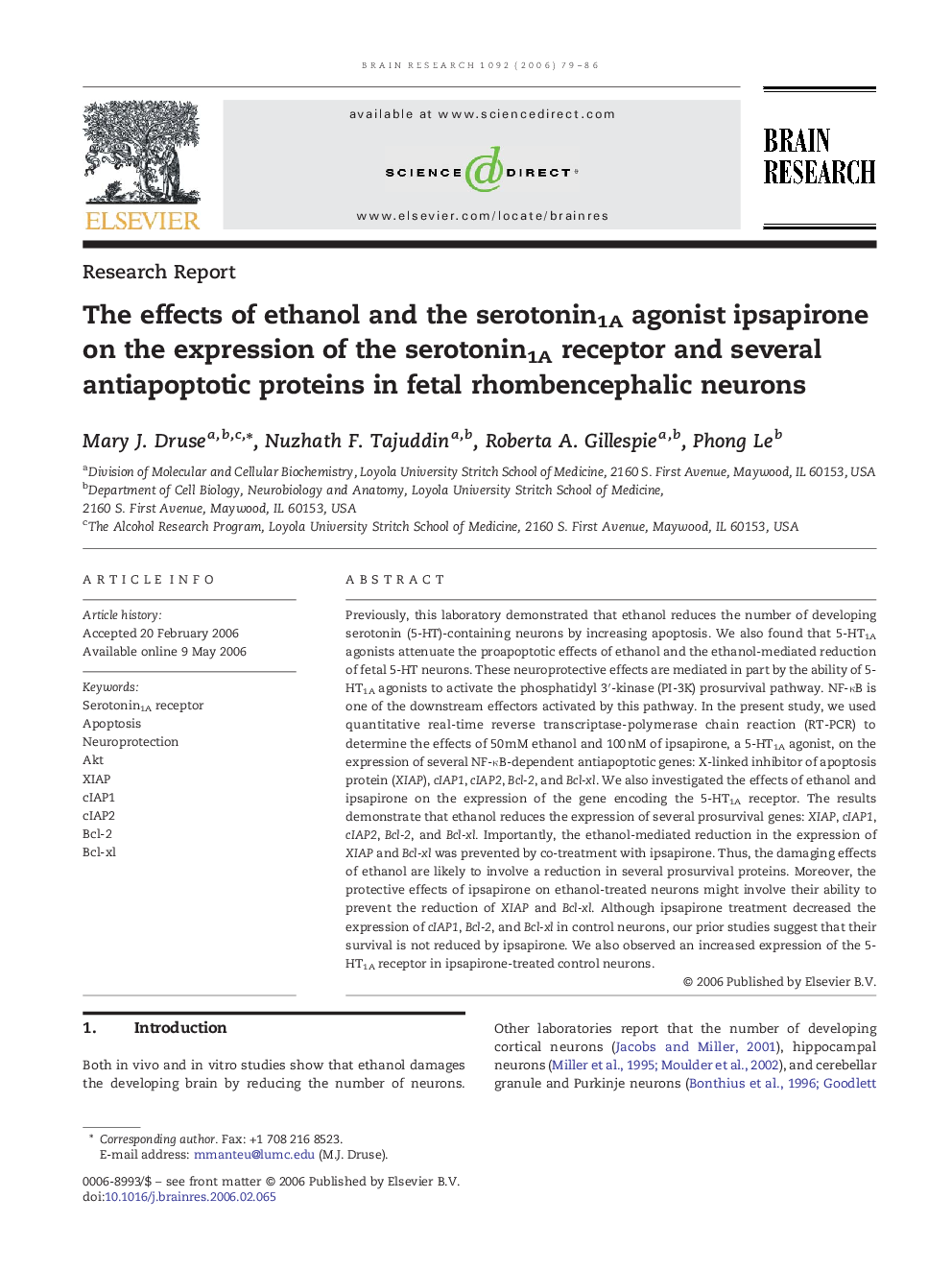| Article ID | Journal | Published Year | Pages | File Type |
|---|---|---|---|---|
| 4332714 | Brain Research | 2006 | 8 Pages |
Abstract
Previously, this laboratory demonstrated that ethanol reduces the number of developing serotonin (5-HT)-containing neurons by increasing apoptosis. We also found that 5-HT1A agonists attenuate the proapoptotic effects of ethanol and the ethanol-mediated reduction of fetal 5-HT neurons. These neuroprotective effects are mediated in part by the ability of 5-HT1A agonists to activate the phosphatidyl 3â²-kinase (PI-3K) prosurvival pathway. NF-κB is one of the downstream effectors activated by this pathway. In the present study, we used quantitative real-time reverse transcriptase-polymerase chain reaction (RT-PCR) to determine the effects of 50 mM ethanol and 100 nM of ipsapirone, a 5-HT1A agonist, on the expression of several NF-κB-dependent antiapoptotic genes: X-linked inhibitor of apoptosis protein (XIAP), cIAP1, cIAP2, Bcl-2, and Bcl-xl. We also investigated the effects of ethanol and ipsapirone on the expression of the gene encoding the 5-HT1A receptor. The results demonstrate that ethanol reduces the expression of several prosurvival genes: XIAP, cIAP1, cIAP2, Bcl-2, and Bcl-xl. Importantly, the ethanol-mediated reduction in the expression of XIAP and Bcl-xl was prevented by co-treatment with ipsapirone. Thus, the damaging effects of ethanol are likely to involve a reduction in several prosurvival proteins. Moreover, the protective effects of ipsapirone on ethanol-treated neurons might involve their ability to prevent the reduction of XIAP and Bcl-xl. Although ipsapirone treatment decreased the expression of cIAP1, Bcl-2, and Bcl-xl in control neurons, our prior studies suggest that their survival is not reduced by ipsapirone. We also observed an increased expression of the 5-HT1A receptor in ipsapirone-treated control neurons.
Related Topics
Life Sciences
Neuroscience
Neuroscience (General)
Authors
Mary J. Druse, Nuzhath F. Tajuddin, Roberta A. Gillespie, Phong Le,
